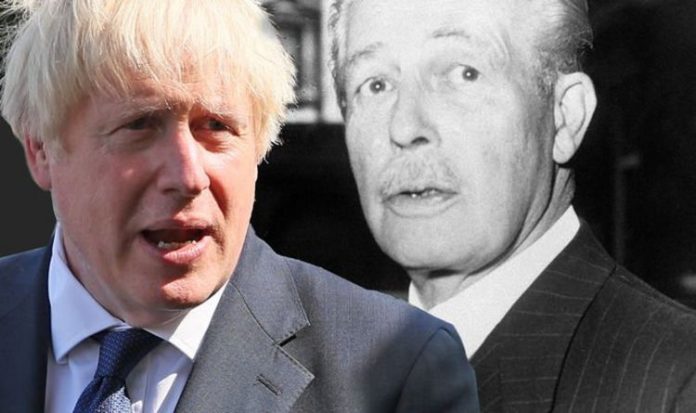British negotiators believe Downing Street’s plan to break international law may have helped reboot the trade talks by offering Brussels a reality check about the looming danger of a no deal scenario. The publication of the internal market bill last week, under which key parts of the withdrawal agreement agreed last year would be rewritten, has enraged the EU and prompted a fresh rebellion within the Conservative Party. Brussels has set Prime Minister Boris Johnson a three-week deadline to ditch his plans or face financial and trade sanctions, with the clear suggestion that negotiations over a future relationship will fail unless the most contentious parts of the proposed legislation are removed.
However, Downing Street believes the row with the EU may ultimately prove to be a welcome disruption to the talks, which had been in deadlock throughout the summer over the most thorny issues of the Government’s future domestic subsidy regime and access to British waters for EU fishing fleets.
In a throwback report for the London School of Economics (LSE)’s blog, Professor of International History Piers Ludlow suggested Mr Johnson is making the same mistake about the EU now as former Prime Minister Harold Macmillan did in the Sixties.
In 2017, Mr Ludlow argued the EU27 are unbending – not because they bear ill-will towards the British for voting to leave, but because the nature of the EU demands internal unity.
On the other hand, he suggested progress is only likely to be made if the UK makes major concessions.
At the time, former Prime Minister Theresa May was trying to negotiate the withdrawal agreement – but, just like today, the talks were characterised by perpetual deadlock.
Mr Ludlow wrote: “Watching the stuttering progress of the Brexit negotiations as a historian of Britain and the European integration process, I can’t help being struck by a depressing sense of familiarity.
“In far too many ways, we’ve been here before. And with no period are the gloom-inducing parallels more striking than with the UK’s very first attempt to join the then European Economic Community (EEC), back in the early Sixties.
“In 1961, Britain approached the fledgling EEC with the confident expectation that the six member states would be so glad to have the UK join them that the negotiation would involve extensive give and take on both sides.
“A degree of French intransigence was expected, it is true, but Macmillan and his key negotiator Edward Heath were confident that the ‘friendly Five’ – the remaining member states – would weigh into Community discussions on Britain’s behalf. Instead, the UK negotiators watched with dismay as the Six bound themselves with a negotiating procedure designed to maximise their internal unity and to minimise the extent to which the applicant could play upon differences of view within the EEC.
“This involved far more extensive discussions amongst themselves – negotiations about Britain, rather than with Britain – than two-way discussions with the country seeking to join.
“And despite repeated attempts by British diplomats and negotiators to play upon the very sincere Anglophilia (and desire for British membership) felt in most European capitals other than Paris, this unity just about held until de Gaulle’s decisive – and unilateral – intervention.”
JUST IN: Boris Johnson’s plan to override Brexit deal can lead to ‘ROYAL mess’
Can’t see this Brexit poll? Click here to open in your browser
This unity among EEC negotiators, the Professor noted, was built around a determined defence of the Community system as it had been created, and as it might develop.
Britain, as a prospective member state, he added, would be allowed some special adaptations to smooth its path into the Community, but such arrangements would be temporary only, designed to lessen the shock of entry but not intended permanently to exempt the new member from any EEC rules.
Mr Ludlow continued: “The EU27’s insistence that a departing UK should not be allowed to cherry-pick those parts of the EU’s system that it likes, and opt out of those it does not, is thus wholly in line with the stance that the founding members adopted.
“But this inflexibility and unwillingness to give ground did not reflect ill-will or animosity towards either Britain or the US, any more than the EU’s current rigidity reflects a desire to punish the UK for voting to leave. It is an inevitable result of the way in which a complex multilateral entity has to prioritise the needs and desires of insiders over and above those of outsiders, however well-liked.”
The present situation, though, is much more uncomfortable and potentially painful than that of 1963, Mr Ludlow explained.
DON’T MISS:
EU on brink as Hungary’s threatens to block recovery fund [INSIGHT]
French politician exposes ‘ugly truth about EU recovery fund’ [EXCLUSIVE]
Guy Verhofstadt’s plan to turn UK into Ukraine after Brexit exposed [ANALYSIS]
He concluded: “The implications of failure are far greater. Britain’s inability to join the EEC in 1963 was a hammer blow to Macmillan’s government and a disappointment to many on both sides of the Channel.
“But ultimately it meant no more than a temporary prolongation of the status quo, and the postponement rather than the end of the UK’s European ambitions.
“Failure now would be much more serious, confronting the country with all the economic, legal and political consequences of a cliff-edge Brexit.
“The British government urgently needs to stop repeating the mistakes of its predecessor over half a century ago.
“A breakthrough in Brussels is a national necessity – even if achieving it requires awkward and painful climb downs.”







